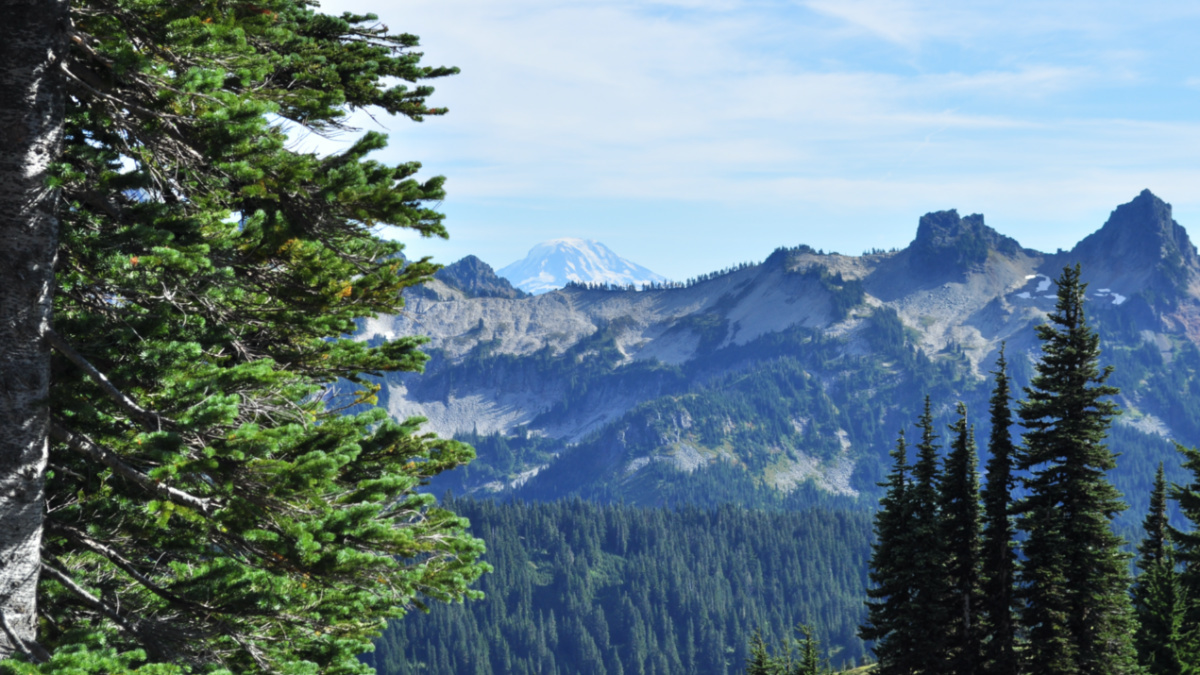
California, Washington and British Columbia Unite to Protect Forests From Wildfires

Agencies in California, Washington and British Columbia are sharing data and strategies to protect forests from wildfires. Joe Mabel / Wikimedia Commons / CC by 4.0
Some of the largest wildfires on record have swept across the West in recent years.
Restoring these areas and managing forests to prevent more dangerous fires is complicated, especially as the climate warms.
“A lot of our management has been designed up until now with the expectation of a stable climate. And that expectation is no longer accurate,” says Dan Siemann of the Washington State Department of Natural Resources. “And so we’re having to think about things like, ‘What species should we be planting here that can survive not only in our current climate, but in future climates?'”
To find solutions, agencies in California, Washington, and British Columbia are collaborating. In a 2018 memorandum of understanding, the three agencies pledged to share data and innovations.
The group is also exploring ways to offset the costs of forest management. For example, they’re looking for markets for wood from the small trees and branches that are cut when forests are thinned.
Siemann says he’s optimistic that by working together, the region can better adapt to global warming while saving time and money.
“We’re really learning from each other and advancing our effectiveness around this,” he says.
Reposted with permission from Yale Climate Connections.
- After a Quiet Summer, 'Dangerous' California Wildfire Burns ...
- Wildfire in LA Burns 7,000 Acres During Record-Setting Heat Wave ...
- Trump Admin Manipulated Wildfire Science to Encourage Logging ...
- Record-Breaking Heat Poses Wildfire Risk for California This Weekend - EcoWatch
- ‘Unprecedented’ Wildfires Scorch Oregon and Washington, Force Thousands to Flee - EcoWatch

 233k
233k  41k
41k  Subscribe
Subscribe 